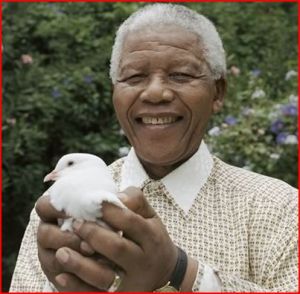I consider myself a spiritual person and fairly religious to the extent that I recognise your actions have consequences. If you do bad today, it will eventually come to bite you. In principal, we should forgive and forget, but in reality I doubt humans have the willpower to do so.
 Even Mandela didn’t preach the mantra of ‘forgive and forget’ because he forgave and remembered. He sought closure by seeking acknowledgement and apologies. This was instrumental in dealing with the aftermath of apartheid in South Africa when victims were encouraged to confront their perpetrators and explain how they were affected by the bloodshed and pain the country endured. Although the perpetrators were forgiven a formal sentence, just watching some of the footage of these ‘trials’ made me wonder just how impactful and more effective such punishment was.
Even Mandela didn’t preach the mantra of ‘forgive and forget’ because he forgave and remembered. He sought closure by seeking acknowledgement and apologies. This was instrumental in dealing with the aftermath of apartheid in South Africa when victims were encouraged to confront their perpetrators and explain how they were affected by the bloodshed and pain the country endured. Although the perpetrators were forgiven a formal sentence, just watching some of the footage of these ‘trials’ made me wonder just how impactful and more effective such punishment was.
It made me put into perspective what I’ve been brought up to believe. My mum is the most humble and kind-hearted person I know. She has suffered some awful experiences at the hands of evil people, and still does. But she has always maintained that you are the bigger person if you forgive and forget; a doctrine passed down by her mother, my Nan.
I went to a Catholic school where the ethos was to “treat others the way you would like to be treated.” We used to repeat this in assemblies and mass, and it will probably always be a firm memory of my childhood.
But with age and experience, I’ve come to learn that this is impractical in reality. What do you do if you forgive and forget wrongdoing by the same person, and they relentlessly continue to take advantage of your virtuous attitude?
Where do you draw the line? Do you continue to forgive in the hope that you will quash evil with good? Or do you forgive once and never again? Surely once is a mistake, twice a fool?
Putting Mandela’s trials into this – if only you could confront the person and question why and how they could go on mistreating you. If they show no remorse, what should be the consequence? Do you just move on or try to make them understand.
Life is so short. You could be here today and gone tomorrow. By that argument you could either seek the philanthropic route and forgive and forget, because life is too short for grudges. Or, you could be practical and respect your self-worth by giving one chance to forgive but never fall victim to being a scapegoat again. Shun the person from your life, and maybe such an approach will make them realise their wrong.
If only the world would run on Mandela’s principles and we all had the resilience, patience and willpower he did to withstand grudges and bitterness. But we are not all Mandela. We can but only strive to his philosophy.
I hope this isn’t a sombre thought for the festive season but more self-reflective. Christmas is a time for forgiveness and gratitude for what we have. I find it difficult to forgive and forget, but that doesn’t mean I can’t forgive. Instead I focus on what I am grateful for; the amazing people around me who I have been blessed with, the simple luxuries in life that we otherwise take for granted like a meal on the table or roof over our heads.
Merry Christmas